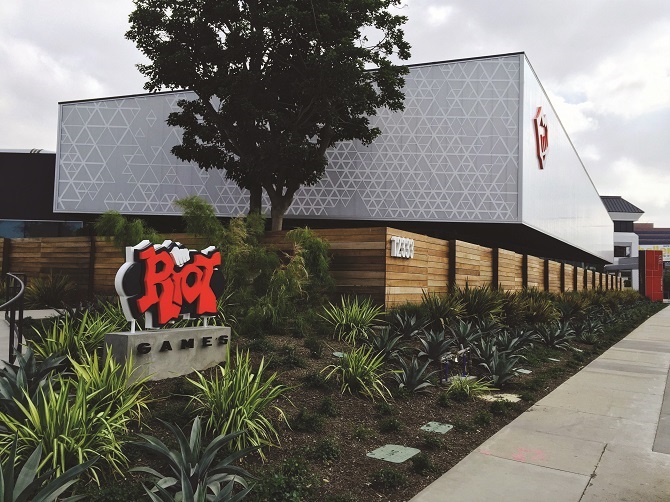Five months after announcing a negotiated settlement in a gender discrimination and pay inequity lawsuit, West L.A.-based Riot Games Inc. could be headed back to court.
California’s Department of Fair Employment and Housing filed a motion Jan. 8 challenging an August agreement for Riot to pay $10 million to women who have worked at the company since 2014.
More than 1,000 current and former employees could claim settlement funds if the court approves the deal.
The parties are scheduled to meet Feb. 1 with L.A. County Superior Court Judge Elihu Berle, who could approve or disapprove the settlement. DFEH alleges the accord “falls far short of basic fairness and the class certification standards designed to protect absent class members in the settlement approval process.”
The state agency also alleges lack of proper notice, adequate representation and enforceable remedies to deter future discrimination and harassment.
Riot criticized the state’s move. “We worked hard to negotiate with the lawyer representing the class to reach an agreement that we collectively believe is fair for the class members and Riot Games,” said Riot spokesman Joe Hixson. “Now the DFEH is trying to disrupt that agreement in a legal filing that is filled with inaccuracies and false allegations.”
Hixson said Riot had shared the settlement agreement with the DFEH “weeks ago, and they raised no objections.”
Ryan Saba, the attorney representing plaintiffs Melanie McCracken and Jessica Negron, also criticized the agency’s actions. “All parties believed it was a fair and reasonable settlement,” Saba said.
He said he was uncertain why the state waited until now to act. “Before we filed the lawsuit, we filed the appropriate DFEH complaint, and the DEFH did not act on those complaints, and it wasn’t until the case was settled that the DFEH decided to insert itself into this process.”
The plaintiffs filed their lawsuit in November 2018.
A DFEH spokesman said during an interview that the settlement “appears to be supported by insufficient data and inaccurate calculations, and in multiple ways does not adequately protect the interests of the proposed class members.”
The agency argues the settlement amounts to less than 2% of more than $400 million in potential back pay owed to female employees. The agency contends the plaintiffs’ methodology for calculating the total owed by Riot to its female employees was fundamentally flawed, resulting in a massive underestimate.
“Riot’s potential maximum exposure for the back pay claims is not $38.8 million as Plaintiffs posit, but more than 10 times that amount for female employees,” DFEH said in its filing. The agency also claimed the plaintiffs failed to factor in equity, stock compensation or the company’s civil liability arising from the sexual harassment allegations.
DFEH’s spokesman added in an interview that “a fair settlement would be one which provides proper notice, adequate representation, and a fair remedy to the entire class, including absent class members — and provides enforceable policy changes to remedy, prevent and deter discrimination and harassment from happening again in the future.”
Riot said it has taken steps to make changes in its corporate culture, including hiring Chief Diversity Officer Angela Roseboro to train and oversee staff behavior. It also hired Frances Frei as a “culture adviser” and Youngme Moon, who joined Riot’s board and leads a committee on diversity and cultural initiatives.
“We are particularly dismayed that the filing downplays and ignores the efforts we have made with respect to diversity, inclusion and culture over the past 18 months,” Hixson said.
Riot has raised roughly $430 million since its 2006 launch, according to industry tracker Pitchbook Data Inc. Chinese internet giant Tencent Holdings Ltd. acquired a majority interest in Riot for $400 million in 2011.

